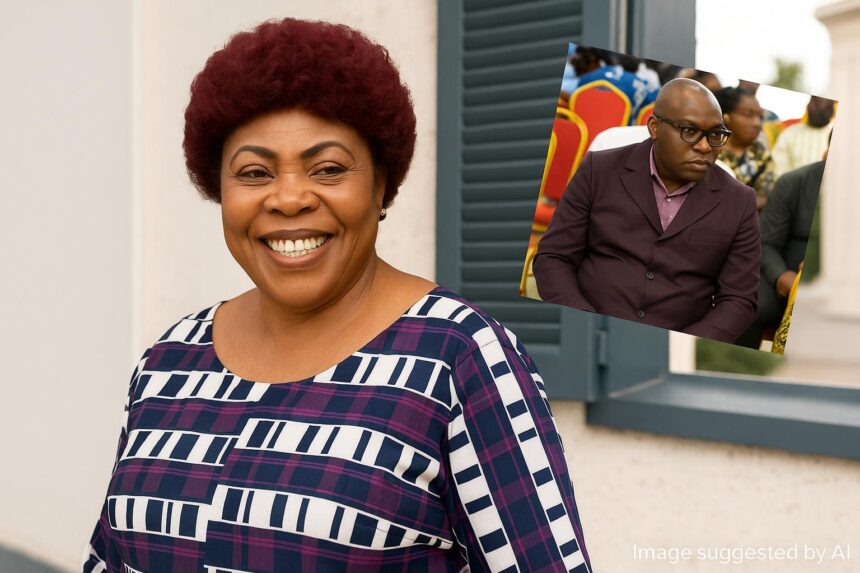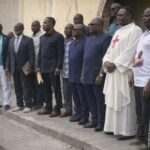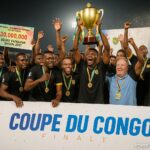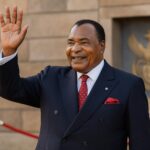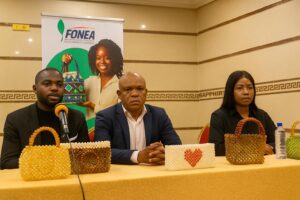Single-ticket race jolts the handball community
The Congolese Handball Federation’s independent electoral commission, chaired by Tunisian lawyer Mouadh Ben Zaied, approved only the candidature list led by former international Linda Ambroisine Noumazalayi for the 16 August 2025 ballot. Rival aspirant Avicenne Cléoface Nzikou Bigoundou saw his slate rejected for missing four files, according to the commission statement released on 13 August.
- Single-ticket race jolts the handball community
- Why Nzikou’s papers faltered
- Legal crossfire escalates
- Tribunal pushes parties to seek fuller relief
- Regional oversight and diplomatic signals
- Domestic authorities keep a measured distance
- From crisis to a potential reset
- Noumazalayi’s agenda for renewal
- Nzikou’s counter-narrative
- Stakeholders weigh reputational stakes
- Precedents in regional sport jurisprudence
- International calendar pressures
- Possible scenarios for 16 August
- Contingency if balloting stalls
- Implications for Congo’s soft power
- Countdown to a decisive weekend
- What a Noumazalayi presidency could mean
Why Nzikou’s papers faltered
Commission reviewers reported that several biographies lacked league endorsements and medical certificates, documents made mandatory by the revised electoral code circulated in June (Fécohand circular No 04/2025). Nzikou’s camp insists it submitted full dossiers and argues procedural changes were communicated late.
Legal crossfire escalates
Sports lawyer Eric Bouanga entered an urgent petition before the Chamber of Conciliation and Arbitration for Sport, seeking suspension of the assembly. At the first hearing on 13 August, presiding judge Michel Kaboul Mahouta granted a one-day adjournment so the Congolese Olympic Committee’s counsel could study the file.
Tribunal pushes parties to seek fuller relief
When proceedings resumed, arbitrators ruled there was “no ground for emergency stay” and advised Nzikou to file a substantive grievance. Bouanga immediately lodged a second referral, this time challenging the legality of the 16 August timetable. The chamber is expected to set a calendar within days.
Regional oversight and diplomatic signals
Mindful of the precedent set during the 2024 impasse, the African Handball Confederation dispatched an observer team led by its vice-president, Béchir Labidi, to ensure compliance with continental statutes (CAHB communiqué, 10 August). Their mandate is limited to observation, yet their presence underscores the vote’s regional resonance.
Domestic authorities keep a measured distance
Both the Ministry of Sports and the Congolese Olympic Committee reiterate that the process must respect federation autonomy. A senior ministry adviser, speaking on background, said Brazzaville “encourages a transparent outcome that strengthens national cohesion and athlete development” without imposing administrative supervision.
From crisis to a potential reset
The federation has grappled with leadership turbulence since September 2024, when incumbent Yann Ayessa Ndinga Yengué won a contested re-election later annulled by arbitrators. His subsequent resignation paved the way for Noumazalayi’s emergence and the prospect of reconciling rival camps fatigued by eleven months of procedural wrangling.
Noumazalayi’s agenda for renewal
In recent interviews with local radio, the candidate pledged to regularise player insurance, revive youth leagues and secure bilateral clinics with North African clubs. Observers note her government relations portfolio during the 2023 Francophone Games gives her leverage to attract sponsorships without depending solely on state subsidies.
Nzikou’s counter-narrative
Nzikou, president of the Pointe-Noire departmental league, portrays himself as a reformist championing grassroots stakeholders. He warns that a “solo candidacy undermines credibility” and contends that the electoral commission lacks the impartiality promised when an external chair was appointed in May (interview, Télé Congo, 15 August).
Stakeholders weigh reputational stakes
Corporate partners monitoring the saga include petroleum major SNPC and telecom operator Airtel, both long-time sponsors of the national championship. A sponsorship executive notes that predictable governance is a prerequisite for renewing multi-year deals currently under negotiation.
Precedents in regional sport jurisprudence
Central African sport federations have occasionally faced single-list elections. In Cameroon’s football body in 2018, a lone ticket proceeded after rival disqualifications and was later validated by the Court of Arbitration for Sport. Analysts argue that this precedent could influence arbitrators in Brazzaville if appeals persist.
International calendar pressures
Congo’s women’s national team begins qualifiers for the 2026 African Championship in November. The Confederation has advised all member associations to finalise leadership before 30 September so delegations can be accredited. A prolonged legal logjam could therefore risk international eligibility rather than disrupting domestic fixtures only.
Possible scenarios for 16 August
If the chamber dismisses Bouanga’s latest petition, the general assembly would move forward with a confidence vote on Noumazalayi’s list. Federation statutes state that if a single slate is present, delegates must still ratify it by an absolute majority of votes cast. Abstentions count toward quorum but not totals.
Contingency if balloting stalls
Should the assembly be enjoined, the interim bureau chaired by technical director Dieudonné Mboumba would continue. This temporary arrangement has limited powers, chiefly routine administration and preparation of national teams, yet cannot conclude sponsorship deals exceeding six months. Stakeholders generally view this scenario as least desirable.
Implications for Congo’s soft power
Sports diplomacy remains a visible vector for Congo-Brazzaville’s regional profile. Successful federation governance can amplify the country’s influence in continental bodies and aid its candidacy to host sub-regional tournaments. Officials underline that institutional stability, rather than medal counts alone, shapes such diplomatic leverage.
Countdown to a decisive weekend
As of press time, observers in Brazzaville describe a calm yet expectant atmosphere at the Palais des Sports. Delegate accreditation badges were printed on 15 August, suggesting organisers anticipate no postponement. Nonetheless, insiders caution that a last-minute injunction cannot be entirely ruled out until the chamber’s seal is affixed.
What a Noumazalayi presidency could mean
If endorsed, Noumazalayi would become the federation’s first female leader, aligning Congo with a continental trend toward wider gender representation in sport leadership. Analysts suggest her appointment could unlock new dialogues with multilateral donors prioritising equity policies, thus complementing the government’s broader inclusion agenda.

